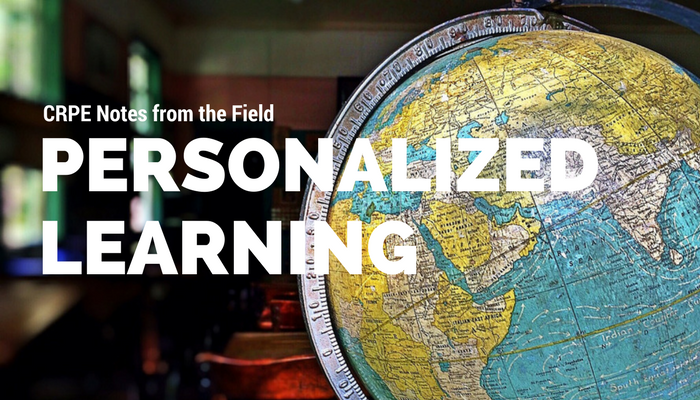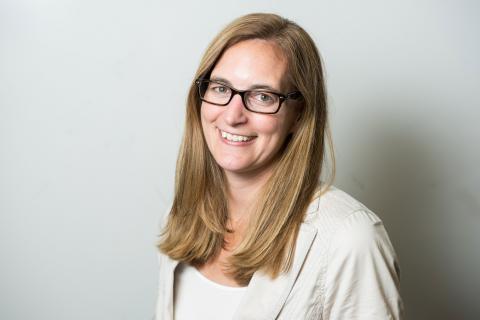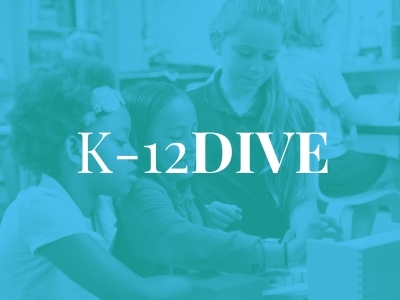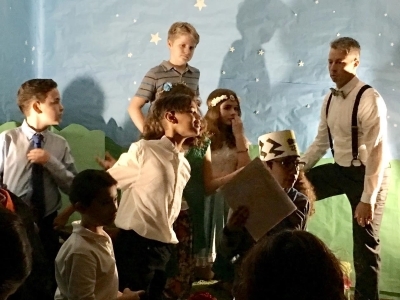When Teachers Work Together to Personalize Learning
Topics

Today’s learners face an uncertain present and a rapidly changing future that demand far different skills and knowledge than were needed in the 20th century. We also know so much more about enabling deep, powerful learning than we ever did before. Our collective future depends on how well young people prepare for the challenges and opportunities of 21st-century life.
Shifting to personalized learning is a heavy burden for teachers when they need to do it all themselves but can be sustainable when they work together.
Learning from your peers—it’s not only an impactful way for students to learn, it’s essential for educators. Especially those who are reimagining, redesigning, and reinventing teaching and learning in our schools. At NGLC, we write often about the power of connecting with and learning from other educators who are involved in next gen learning. This is just a sampling:
- Learning Excursions
- The Power of Learning Networks
- We Are All Learners: Professional Learning in Collaborative Networks
- The Power of Local
- RETHINK: Planning and Designing for K-12 Next Generation Learning
- Blended Learning? Yes! Now What??
We write about it because we hear it from the educators in the NGLC network, all the time. They tell us that connecting with other innovative educators is the most valuable benefit of the network. They learn more from and with each other than from any other resource.
This approach to growing next gen learning—educators connecting with their peers—has become a central tenet of NGLC’s vision. It is a guiding principle for the way we support the educators who are reimagining public education.
In Teachers Don’t Need to Go It Alone on Personalized Learning, Betheny Gross of the Center for Reinventing Public Education (CRPE) highlights how teachers are working together in Colorado and New Orleans to “network and support each other in the effort to radically remake the classroom.” Colorado and New Orleans are two of the seven locations of the NGLC Regional Funds, which were created out of this principle of educator-led innovation to seed personalized, next gen learning school designs in cities and regions. Betheny notes that educator-led innovation doesn’t stop at the design phase but has become an important element to sustain the implementation in classrooms.
In one Colorado district, middle and high school teachers collaborate with their subject peers districtwide to write “common units.” These teachers not only draft unit plans together but also follow up to discuss implementation, review student work, and revise the plan for the next year. The unit I observed offered students rich content plus interesting and complex assignments and projects from which students could map their learning. When I talked with the teacher after class, he described the collaborative unit development process as deeply professional and engaging. This struck me as a triple win: the students had a high-quality learning experience, the teacher had a rewarding professional experience, and the burden of creating the unit was shared among a group of teachers rather than each teacher laboring in isolation.
Read the complete post on CRPE’s blog for a description of the teacher-led collaboration in New Orleans and for the three features that Betheny identifies as particularly valuable for teachers to lead the reinvention of their classrooms and to do it together. As she states, “There really is no need for teachers to go it alone.”
Related Posts
- We Need to Personalize Personalized Learning - Ultimately, personalized learning should be about problem-solving to help every student thrive, not one particular approach to instruction. But teachers need support to be able to manage the complexity of this task, says CRPE’s Robin Lake.
- Teachers Need More Clarity When it Comes to Personalized Learning - When schools map their theory of personalized learning, claims CRPE’s Betheny Gross, teachers can see how the activities they do in the classroom lead to the goals they set with and for students.
- 5 Next Gen Professional Learning Practices Used by Schools Today - We asked leading educators to tell us how schools and districts can best enable their teachers to work successfully in personalized, next gen learning environments. This is what we learned from them.




